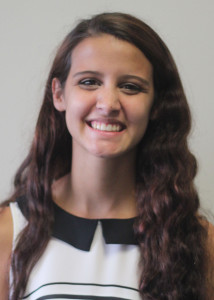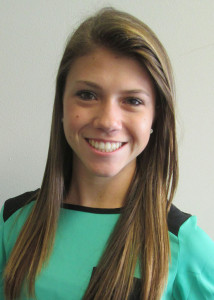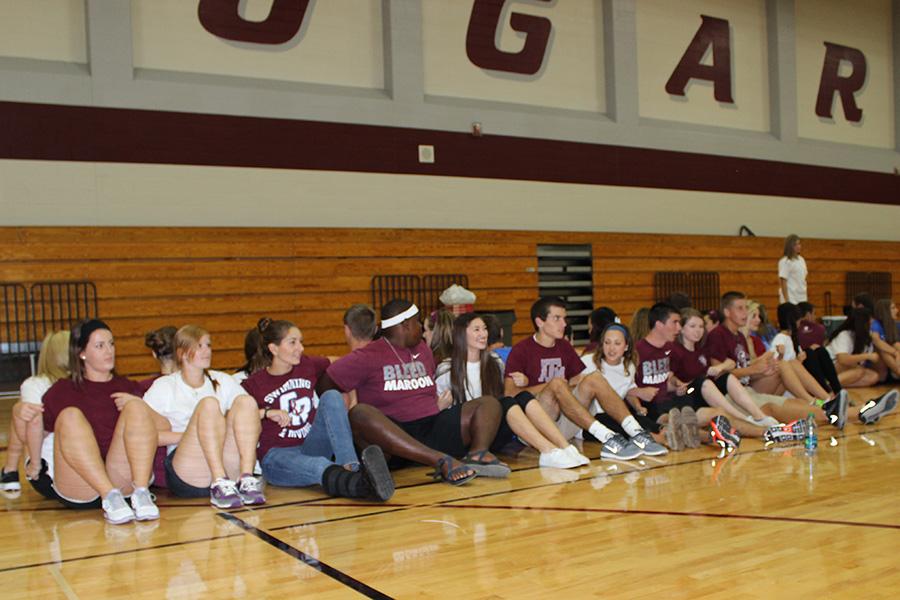PALS named model program for district
PALs students practice a team-building activity during their day-long training event in September. After six weeks of mentor training, the three PALs classes travel to elementary and junior high campuses during third period to mentor younger students.
A fun class with no homework, hanging out with kids and spontaneous Chick-fil-a runs is one thing, but growing as a person in the district-recognized Peer Assistance Leadership Skills, or PALS, program is priceless. In late spring of 2013, district officials contacted sponsors from the PALS program, hoping to build and improve similar classes at other Katy ISD schools based on the selection and training methods used here.
“Other PALS programs would like to model after ours, which is a huge compliment, but it all comes from the students,” PALS advisor Quentin White said. “They get it. They walk in with an open mind, and if at first they hear something – an idea that might be different from theirs – they say, that might be okay. Let me listen to it; take something from it.”
Students interested in the program go through an intensive interview process in the spring to be selected for one of three classes. After six weeks of training, PALS students are matched with elementary or junior high students from nearby schools and alternate between visiting the younger students, or “pallees,” and having in-class discussions.
“The PALS program not only goes out and helps others, but the students themselves learn a lot about themselves,” White said. “I’ve seen a lot of change since the first year I was in it. Ms. Steger, Ms. McConnell and I all believe – and our t-shirts last year said – ‘through helping others, we help ourselves.’ By being a good person towards others, you in turn make yourself a better person.”
Senior and second-year member Linny Nezat had trouble making friends in elementary school because she was too friendly and scared other kids away. This experience helped her connect with her pallee, who had a similar problem.
“He was very smart, and he couldn’t understand that other kids were not as smart as him,” Nezat said. “Coming from that, knowing how it feels for other people not to understand you, I definitely knew what he was going through. I knew that he just needed someone. I told him all the time that I was his friend, even if he only saw me once a week and we couldn’t hang out all the time.”
Pallees are selected for the program for a variety of reasons, including from shyness or hyperactivity to serious issues like moving or divorce. In any case, the older mentors are available to give advice and hard-earned wisdom.
“We teach [PALS students] a lot of reasons why children are the way that they are,” White said. “We also teach them how to help the younger kids understand that everything gets better, and to help them always find creative ways to help others find the bright side of their situation – the pluses. There’s a bright side to everything, the way I look at it.”
A kindergartener that Riley Humphrey, also a senior and second-year member, mentored during her junior year appeared shy and uncomfortable throughout all of their time together. Just before their last day, Humphrey grew sick and was forced to miss it.
“I found out later that she cried the entire day and couldn’t get over that I couldn’t hang out with her,” Humphrey said. “So on one of our half days, I went over there and had lunch with her. It had a big impact on me, knowing that even though she might not have shown it, she did appreciate the things that I did for her.”
No correspondence has been exchanged between the PALS advisors and district personnel about the expanding program since last spring. Despite this, “it all goes back to the students,” White said.
“Students here at Cinco Ranch do a very, very good job of following through the PALS training and understanding that the program is about the kids they serve,” White said. “They learn to be good, positive role models. They don’t have to even think of themselves as that. They just naturally become role models.”

Emily Burleson, senior, is Managing News Editor for her third year on staff. The thrill of reporting breaking news is her favorite part of working on...

Alexia Silva is junior this year and a first year staff photographer for the school newspaper and yearbook. She enjoys eating french fries and listening...

Makenzie Kramer is a junior, varsity cheerleader and a photographer. She likes having fun with her friends, cheerleading, and tumbling. Besides cheer...

